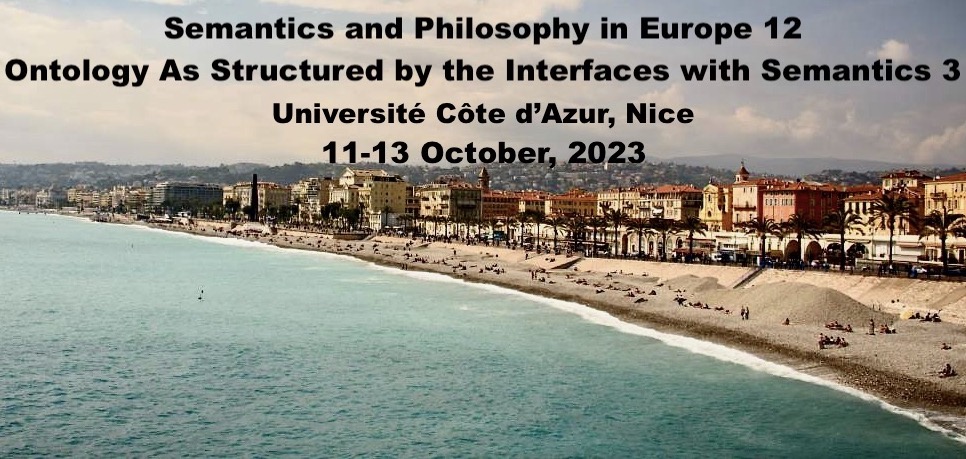
|
|
|
Special Sessions > Intentions
Call for papers:
Intentions are often present as default inferences of sentences that lack explicit morphology that codes for intentions. For instance, in a sentence such as "Mary took the 30 bus" we by default assume that Mary took that bus intentionally. Event descriptions might play a role in such inferences: an event described as taking the bus is typically instrumental in higher-level intentions or plans, e.g. "Mary took the bus to go to town to see the movie". This special session of OASIS 3 will focus on the semantic relevance of intentions and their relation to plans. A relevant possibility is that intentions underlie the interpretation of sentences entailing the existence of a plan. Inferences to intentions seem to be at the basis of sentences for whose analysis plans have been invoked, in particular (a) futurates (e.g. "The Red Sox play/#defeat the Yankees tomorrow"), as well as (b) sentences that entail an authority relation between matrix and embedded subject (e.g., have-causatives, "My boss / #my daughter had me wake up early this morning"). For instance, what would ground the possibility of the futurate "Mary is taking the bus at 3pm" and the have-causative "My boss / #my daughter had me wake up early this morning" would be the existence of a present intention on the part of Mary and a past intention on the part of my boss, respectively. In the plan and authority cases too, there is no morphology specifically coding for intentions.
Other phenomena that also seem to be grounded on inferences to intentions include (c) causal inferences in discourse (e.g., the fact that "Jones poisoned Smith. He wanted to have no opponents at the election." is easily understood as involving a silent because) and (d) the negation of action sentences via special aspectual particles such as anymore (e.g., "Mary wasn’t taking the bus at 3pm anymore — she intended to but did not in the end —" vs. "Mary wasn’t falling off her bike anymore"). All these cases have in common that they contain no morphology specifically coding for intentions. Still the existence of the intention is not cancellable. This special session will address the following questions:
- What allows intentions to be commonly inferred or entailed in the absence of intention-specific morphology?
- What is the role of context ("my daughter woke me up at 4am" / "my boss woke me up at 4am") and type of event description ("take the bus" / "step on the bus") in triggering the inference to an intention?
- Are we correct in thinking that plans and authority relations supervene on a notion of intention? Either way, how are plans and authority relations to be represented by primitive ontological entities?
- The linguistics literature on the verb phrase points toward the treatment of intentions as causes, but this is controversial in philosophy; how to resolve this conflict?

